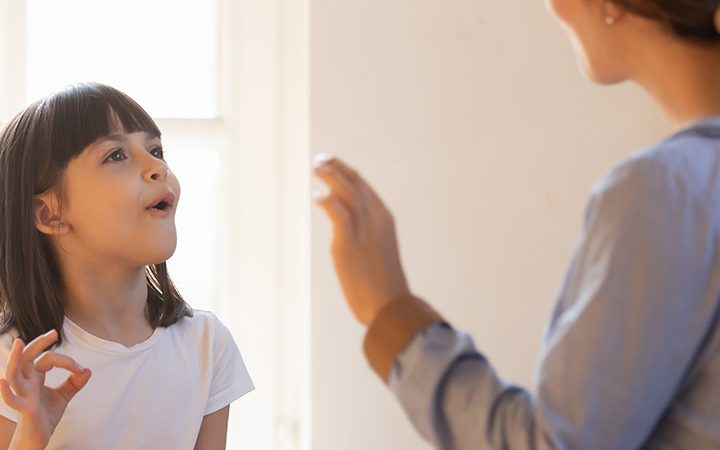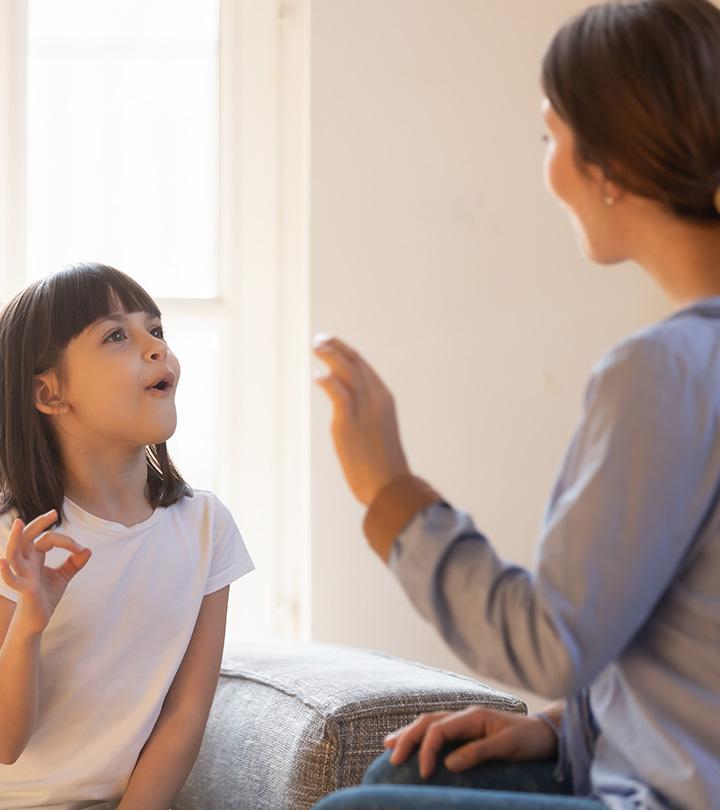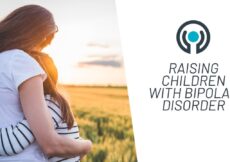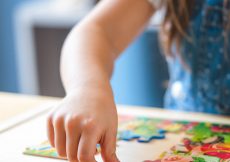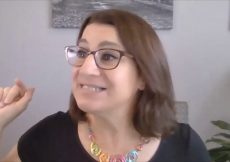A language delay is a communication disorder characterized by difficulties in understanding or speaking. Children with this condition may experience difficulties saying or learning first words, putting them together to form sentences, increasing their vocabulary, and understanding words or sentences (1). A language delay means that the child is developing language correctly but at a slower pace than usual (2).
One out of five children learns to talk or use their words later than the other children of their age (3). Read about the types, risk factors, causes, symptoms, diagnosis, treatment, and prevention of language delays in children.
Types Of Language Delay In Children
Language delays are mainly of two types (4).
- Primary language delay: No other associated difficulty is identified in primary language delays.
- Secondary language delay: Conditions such as autism, hearing impairment, and global developmental delay impact language skills.
Language problems can be of the following types (5).
- Expressive language problems: When the child has difficulty in verbal communication.
- Receptive language problems: When the child has difficulty in understanding the language.
Causes And Risk Factors For Language Delays In Children
The exact cause of language delay is not known. However, as language delays run in families, a genetic or biological component could cause language delays in children.
The following factors increase the risk for language delays (1).
Symptoms Of A Language Delay In Children
The following are the common characteristics of language delay (4).
- May begin talking late than peers.
- May not be saying their first words by 15-18 months.
- May say a few first words but not learn other new words quickly.
- May use less than 50 words and may not use a combination of two words by two years of age.
- May have problems understanding or following instructions.
- The language may seem immature for their age.
- Might experience difficulties in attending group activities at school or kindergarten.
- May exhibit difficulties in eye contact, attending to activities and speech or using sounds or gestures.
- Can have problems answering questions, forming sentences, forming spellings, and reading and writing.
- May not be able to convey their message across.
- Cannot use grammar correctly.
- May have difficulties in interacting with peers.
- Show poor organizational skills.
- May not be good with paying attention and concentrating.
Signs To Seek Medical Help For Language Delay In Child
You may consider seeing a healthcare provider if you notice the following signs in your child at different ages (1).
By 12 months
Unable to communicate using sounds, gestures, or words, especially when they need help or want something.
By two years
- Not saying about 50 different words
- Not combining two or more words to form phrases such as “more food,” and “mum up.”.
- Not producing words spontaneously but is only copying words or phrases that others say.
- Unable to follow simple instructions or questions, such as “want more snack?,” “get your jacket,” or “where is Mumma.”
By three years
- Not combining words to form sentences.
- Unable to understand longer instructions or questions, such as “get your books and put them in the bag” or “what do you want to wear for the picnic tomorrow?.”
- Has little or no interest in books
- Does not ask questions
From four to five years and older
Some children continue to have language difficulties by the time they start preschool or school. If these difficulties cannot be explained by conditions, such as ASD or hearing loss, it might be a developmental language disorder.
At any age
- Diagnosed with hearing loss, developmental delay, ASD, Down syndrome, fragile X syndrome, etc.
- Stops doing things they already knew, such as stops talking.
Diagnosis Of Language Delay In Children
A comprehensive medical assessment can help identify language delay. The healthcare providers may conduct several interviews with the child, the parent, and the caregiver. They will ask questions regarding the child’s medical history and engage the child in unstructured play to determine how well the child uses and understands the language. The doctor may perform several standardized tests to find the cause and impact of language delay in the child (5).
Treatment For Language Delay In Children
The treatment of language delay is unique for each child. The healthcare team might comprise a pediatrician, physician, audiologist, psychologist, occupational therapist, social worker, and child and family health nurse.
- The primary goal of the treatment is to teach the child strategies for understanding spoken language and communication.
- The speech-language pathologist can help the child learn different ways to communicate. They also help the parents learn different ways of encouraging the child to talk at home.
- For children with elective mutism, psychotherapy may be suggested. Hearing aids, auditory training, lip reading instructions, etc., might help children with hearing loss.
- Speech therapy may happen in various settings, including SLP clinics, homes, schools, or classrooms. It includes naming objects, discriminations tasks, individual or group play, reading, conversations, modeling and prompting (6).
Overcoming language disorders can take time and effort. Parents need to be patient through the process. Timely diagnosis and early intervention are important because language delay may leave a child frustrated as they cannot convey their emotions. The right help influences and develop the child in all aspects of life.
References:
MomJunction’s articles are written after analyzing the research works of expert authors and institutions. Our references consist of resources established by authorities in their respective fields. You can learn more about the authenticity of the information we present in our editorial policy.
The following two tabs change content below.


